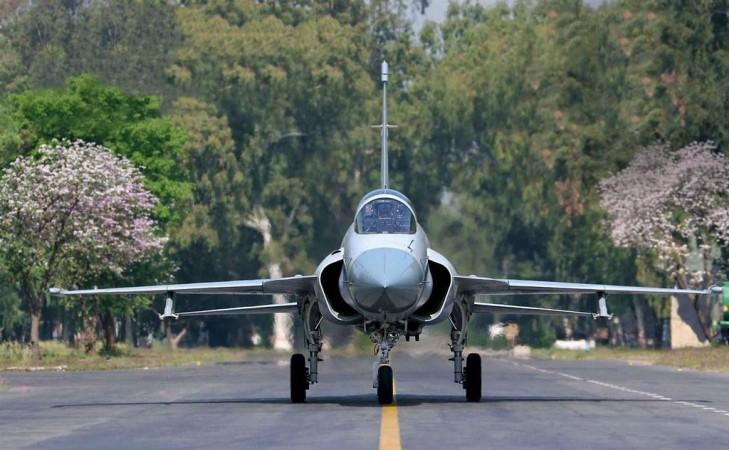Tensions are flaring between Pakistan and Myanmar as a fleet of newly acquired JF-17s fighter planes supplied by Pakistan face significant operational issues. The Myanmar military junta leader, Min Aung Hlaing, has expressed his displeasure to Pakistan's Prime Minister Shehbaz Sharif and military chief, General Asim Munir. These JF-17 Thunder multi-role combat aircrafts were delivered between 2019 and 2021 and have now been declared "unfit for operations."
The aircraft's malfunctioning and structural flaws led to their grounding soon after delivery, a problem that persisted into 2022. Currently, none of the eleven JF-17 fighter jets supplied to Myanmar are operational due to technical glitches. Unsuccessful attempts by Pakistani engineers, who secretly visited Myanmar in September 2022 to address the issues have left the military junta infuriated. Reports suggest that they have conveyed a stern message to Islamabad to rectify the situation.
Simultaneously, the junta has sought intervention from Beijing, with the Myanmar Chinese envoy delivering a message from the Chinese Communist Party's leadership to Gen Min Aung Hlaing, according to a report by Narinjara News.

Pakistan is striving to renegotiate the deal, proposing newer versions of the JF-17s developed by Pakistan Aeronautical Complex and Chengdu Aircraft Industries Corporation of China. However, it remains uncertain whether the military junta has accepted this renegotiation.
The non-utility of these aircraft has hampered the junta's plans to strengthen its airpower for targeted strikes on Myanmar's resistance groups, particularly the People's Defence Force (PDF), the armed wing of the National Unity Government (NUG).
The crisis surrounding the malfunctioning JF-17s has also impacted Pakistan's efforts to sell similar aircraft to other countries, particularly in Latin America, as potential buyers have grown reluctant.
Not the first time
In addition to Myanmar's experience, the JF-17s have faced challenges in Nigeria. Out of 15 F-7 NI fighter aircraft inducted by the Nigerian Airforce (NAF) in 2009, six had crashed by 2018, rendering the remaining nine unserviceable. Despite heavy maintenance and upgrades, a FT-7 NI trainer aircraft supplied by China crashed in July 2023.
Notably, Argentina has declined to purchase JF-17s from China and Pakistan.

The JF-17s come with substantial operations and maintenance costs, making them less cost-effective compared to modern weapon systems. Experts have indicated that even after repairs, these aircraft may be challenging to use without significant technical expertise, potentially necessitating training programs in Islamabad.
Moreover, the absence of key components, such as the China-made KLJ-7 Al radar and beyond-visual-range (BVR) missile or airborne interception radar, has impacted the aircraft's accuracy and effectiveness. Structural weaknesses have also been noted, raising concerns about their ability to withstand gravitational forces and strong winds.
The Myanmar junta has sought to enhance its air-to-surface missile capabilities using the JF-17s, but the process has proven difficult and costly. Notably, China has yet to include a single JF-17 in its own inventory.










